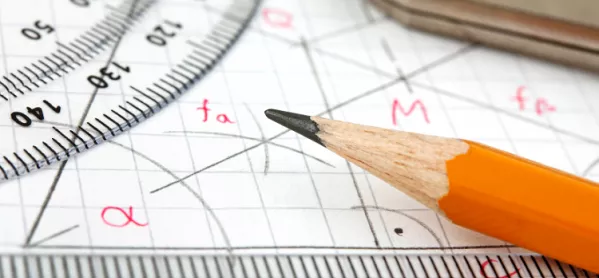Changing early entry patterns have resulted in fluctuating outcomes in core GCSE subjects, today’s results show.
In GCSE maths, the proportion of UK entries receiving an A/7 grade or above increased from 15.5 per cent last year to 15.8 this year.
The Joint Council for Qualifications - the body that represents the exam boards - suggested that changes in the 15-year-old cohort had helped to push up the share of top grades in the subject.
This year the number of early, 15-year-old, entries for maths across the UK decreased by 53.4 per cent. However, the 7,583 candidates who were entered at this age were higher-attaining - passes at A/7 and above among 15-year-olds rocketed from 19.1 per cent in 2017 to 40.1 per cent this year.
The number of GCSE entries among students aged 17 and over, who generally have lower grades, dropped by 4.3 per cent - a sign that entries for this age group are beginning to stabilise after large increases in recent years related to resits.
In English literature, results at grade A/7 and above increased from 19.2 per cent in 2017 to 19.9 per cent this year, and results at grade C/4 and above increased from 72.6 per cent to 73.6 per cent.
Early GCSE entries
JCQ suggested this had been partly driven by changing patterns of early entry over the past three years - the number of 15-year old entries increased by 39.1 per cent in the subject in this year alone.
JCQ said that its analysis indicated that the rise in pupils “banking” their English literature grade a year early had created a stronger performing 16-year-old cohort that had pushed up overall results.
In English language, entries achieving A/7 and above increased from 13.6 per cent in 2017 to 14.1 per cent this year.
Sixteen-year-old male pupils performed more strongly this year. The proportion in this demographic achieving A/7 and above rose by 1.3 percentage points from 11.4 per cent in 2017 to 12.7 per cent this year, while girls’ results only increased marginally from 22.3 per cent to 22.5.
For students sitting the 9-1 English language GCSE, the proportion achieving 7 and above fell by 0.6 percentage points from 14.6 per cent in 2017 to 14 per cent this year, while passes above a 4 fell 2.9 percentage points from 64.9 per cent in 2017 to 62 per cent this year.
JCQ said this was driven by a growing number of 17-year-old resitters in England.




